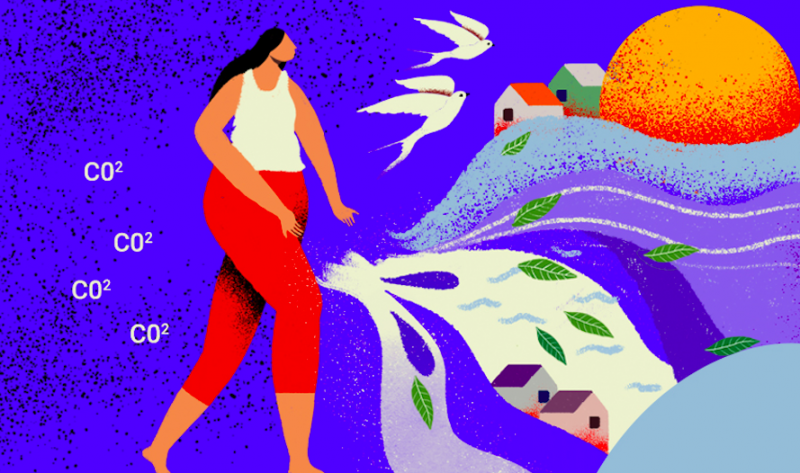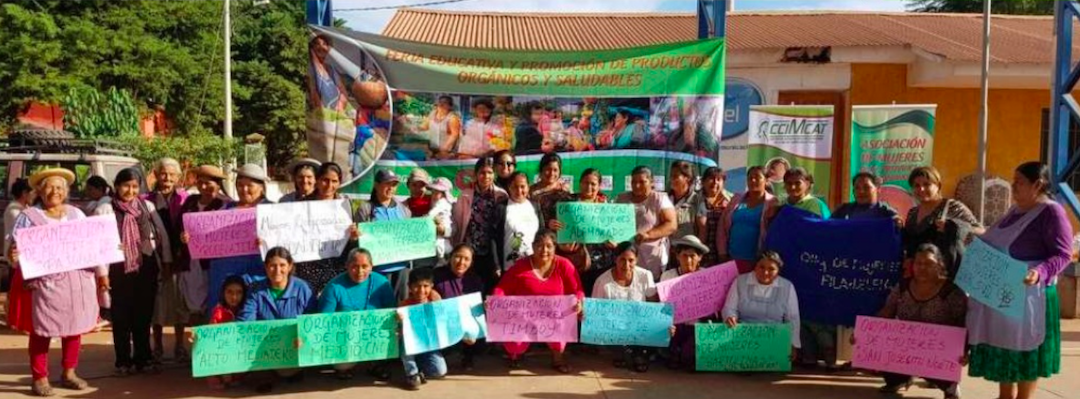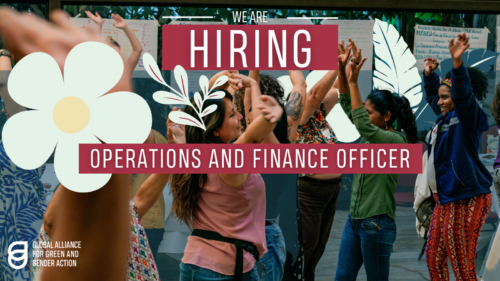Women of Entre Ríos lead awareness campaigns on water use and management

Oil and gas have played a big role in Tarija, a department in the south of Bolivia, for a long time. Hydrocarbon exports represent the country’s first source of income and the majority of it comes from Tarija. As a result, the Bolivian government has often chosen to put natural gas and oil extraction above the protection of Indigenous people and their land in a country which is one of the most vulnerable to climate change.
In the area of Entre Rios, communities depend on two main rivers and springs for their livelihoods and for their everyday consumption and household tasks. In recent years, they have experienced water shortages like never before. Rivers have almost dried up, affecting communities’ livelihoods, as a result of the climate change-related impacts of rising temperatures and longer dry seasons.
These same water sources have also been contaminated by oil from nearby oil fields set up by companies contracted by the Bolivian government. The communities have no other option but to drink this polluted water in order to survive, especially during times of drought.

In response, women from 40 communities in Entre Ríos, as part of the Asociación de Mujeres de la Provincia O’Connor (Association of Women from O’Connor Province or AMPRO), are leading actions to save their rivers. They are recovering ancestral knowledge on water and raising awareness among communities and schools on efficient water use and management, as well as on the protection of local rivers, through in-person trainings, radio programs, school fairs and other local communication channels.
During the school fairs, the women show students how to construct water harvesting tanks from recycled bottles in order to store water during drought and maintain small organic vegetable gardens to secure food for each family. AMPRO presented local authorities with the law “Protection and conservation of water sources,” showing them alternatives to the water crisis and got it approved. The women are now monitoring the compliance of the law.
AMPRO is also promoting ecological products, organic fertilizers, afforestation and reforestation. They are forming inter-institutional alliances and strengthening their members so they can continue their advocacy to protect the environment and the rivers which for them are a source of life.
AMPRO is supported by the Fondo de Mujeres Del Sur, which is a part of the GAGGA network.
Illustration by @Naandeyeah.

We Are Hiring: Operations and Finance Officer!
DEADLINE EXTENDED! Are you passionate about ensuring efficient financial management and operational excellence to support transformative work in climate, environmental,…

We Are Hiring: Donor Engagement Officer!
DEADLINE EXTENDED! Are you passionate about cultivating relationships and securing funding to support transformative work in climate, environmental, and gender…

Welcoming Anamika Dutt As GAGGA’s Planning, Monitoring, Evaluation & Learning (PMEL) Officer!
Anamika Dutt is a feminist MEL practitioner from India. Anamika believes that stories of change and impact are best heard…
Subscribe to our newsletter
Sign up and keep up to date with our network's collective fight for a gender and environmentally just world.
